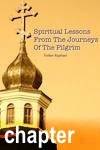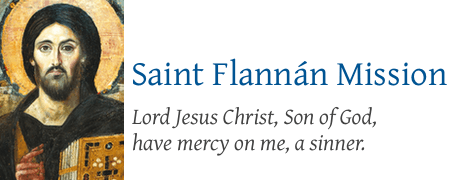 During our moments of despair and desolation, what is our heart saying? Are we closer to God, or further away?
During our moments of despair and desolation, what is our heart saying? Are we closer to God, or further away?
Dear beloved,
In life, especially many of us who are truly in the world, laboring away to make a simple living for us, and our precious families, facing adversity is part of what we experience. For many of us, it is laboring away to make a simple living to take care of our beloved families. For others, we have to be caregivers of relatives who have become chronically ill, with medical and other expenses to think about. There seem to be many possible permutations to what adversity takes shape to snarl at us in our faces. What then, do we do in the face of adversity?
As our pilgrim progresses in his prayer and his reading of the Philokalia, he began to understand the writings of the fathers in the holy text more. The pilgrim has shown us that prayer must precede study, because our limited persons cannot possibly understand the deeper teachings of Christ. Only through a sustained faithful prayer over a length of time (Nehemiah 9), and certainly not a timeframe we determine, but God’s timeframe, asking for His mercy to open our eyes, before we begin to be able to unravel the mysteries and beauty of the many sacred texts of the fathers. The pilgrim also explained that sometimes, the reposed starets would appear in his dreams, to explain parts of the Philokalia to him. And the pilgrim would read and pray in the day, and walked only at night, to make best use of the light of the day. Wherever he went, he asked only for dried bread and some salt for sustenance, and would then walked on again. The pilgrim demonstrated to us a constancy of prayer, a disciplined and ascetic approach to daily life, with little attachment to the material world.
However, his blissful prayerful state was soon disrupted, when he was hit unconscious by two soldiers, and robbed of his only possessions – the knapsack containing his Holy Bible and the Philokalia.
From a blissful and tender state, the pilgrim was reduced to deep grief with tears day and night. He lost his Holy Bible, which has comforted him in his childhood, his most intimate possession, and his copy of the Philokalia, his most recent treasure that has brought him closer to God. He wished for death rather than to live (Jonah 4). That was when the starets appeared to the pilgrim once again, and told the pilgrim that the incident was one of Divine mercy and grace, to prevent the pilgrim from sinking into attachment of material possessions and spiritual greed. Sometimes, in our pilgrimage, we look for spiritual consolations, and focus on them, rather than focusing on God Himself. We become greedy, possessed by our own inner demons and our own will, rather than sinking into the deep oasis of God’s will. The starets in the dream, explained to the pilgrim that sometimes, we have to grieve before we can find closeness to God once again (1 Corinthians 10:13). Imagine this. If we are given a life of luxury and comfort with no trouble at all throughout life, how will we ever understand how much we have been blessed with? How can we learn of true love for those endowed with less, unless God shows us how wretched we truly are?
The pilgrim woke from the dream relieved, and picked himself up, and started praying the Jesus Prayer with the Sign of the Cross once again, and asked God’s will be done. In returning to the basics of humility and constancy of prayer, he found the heart of peace again.
Life is never a constant. It is transient. God revealed His mercy upon the pilgrim once again, when the pilgrim’s path converged with a convoy of convicts, among them the two soldiers who robbed him earlier. He pleaded with the two soldiers and offered to pay them a small fee if he could have his Holy Bible and the Philokalia back.
The pilgrim found his Holy Bible and the Philokalia, in the care of the Captain who supervised the transit of the convoy. The Captain was a religious man who then shared a meal with the pilgrim.
The Captain revealed that in his youth, he was taken to alcoholism and that destroyed his life. The Captain eventually met a monk who instructed him to read the Bible every time his urge for the bottle returned. At first, the Captain could not understand the Bible at all. However, even as reluctant and unrepentant he was, God’s mercy permeates through any person who would bother to open up the Holy Bible, and His grace would reform any person. Eventually, truly, by the mercy of God, the Captain’s inner demons were banished by his slow and steady embrace of the reading of the Bible. Every time his urge for the bottle returned, he braved on to read yet another chapter of the Holy Bible. The monk told the Captain that Saint John Chrysostom, father among the saints, said that the very presence of the Holy Bible would chase evil spirits away. The Captain eventually reformed, regained his rank and status, and kept close to his breast pocket, a Holy Bible everywhere he went and prayed.
At this juncture, the Captain asked the pilgrim whether the Jesus Prayer or the Holy Bible is more exalted. The pilgrim said that to him, both are the same, because the most holy name of Jesus Christ contained the entire truth of the Bible, and that the holy Fathers said that the Jesus Prayer is the abbreviated form of the entire Bible. This is the mystery of the Jesus Prayer, a mercy and grace from God, through the holy name of Jesus Christ our Lord (St John 14:13-14).
Dear beloved, let us pray,
“Lord Jesus Christ, Son of God, have mercy on me, a sinner.”
Book Index | Prev: Prayer & distraction | Next: Body, mind & heart
